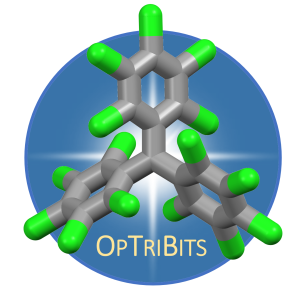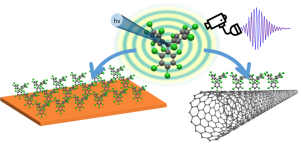OPTRIBITS

Optically Addressable Trityl-Radical-Based Molecular Qubits
Quantum technologies are widely believed to fundamentally change society in the near future and extraordinary effort is being expended towards this goal. However potentially insurmountable challenges may loom on the horizon, e.g., lack of scalability, lack of tailorability and lack of qubit positionability. In OPTRIBITS, we will exploit the fundamental advantages of paramagnetic molecules for application as spin-based qubits in quantum technologies. Molecules have been shown to possess long ensemble coherence times up to the millisecond regime, with figures of merit exceeding 10,000. Molecules are nanoscopic in size, allowing for integration into devices at high densities enabling miniaturization of quantum devices. Molecules are highly tailorable in terms of spin values, spin level structures, and excited state properties, enabling their adaptation to specific quantum technological objectives. Interqubit interactions can be exquisitely controlled, due to the high degree of qubit positionability in few-qubit or ordered arrangements, leading to well-defined interactions. The main issue preventing the widespread use of molecular qubits has been the lack of convenient single-entity readout. As a result, the vast majority of results on molecular qubits have been obtained by ensemble measurements featuring large numbers of identical qubit copies. This proposal aims to remove this drawback by developing optically addressable molecular qubits. Optical addressing has been amply demonstrated to allow single-entity readout because of the single-photon sensitivity of optical detectors. To this end, we will design, prepare and study robust molecular qubits, which have spin states that allow for inducing spin polarization by optical pumping and are highly luminescent to allow for optical readout. In a second step, we will work towards device integration by immobilizing the qubit architectures on gold surfaces or by creating hybrid structures with carbon nanomaterials.

CONSORTIUM
- Coordinator: Joris van Slageren ( University of Stuttgart, DE)
- Sofie Cambré (University of Antwerp, BE)
- Nuria Crivillers (Agencia Estatal Consejo Superior De Investigaciones Científicas, ES)




